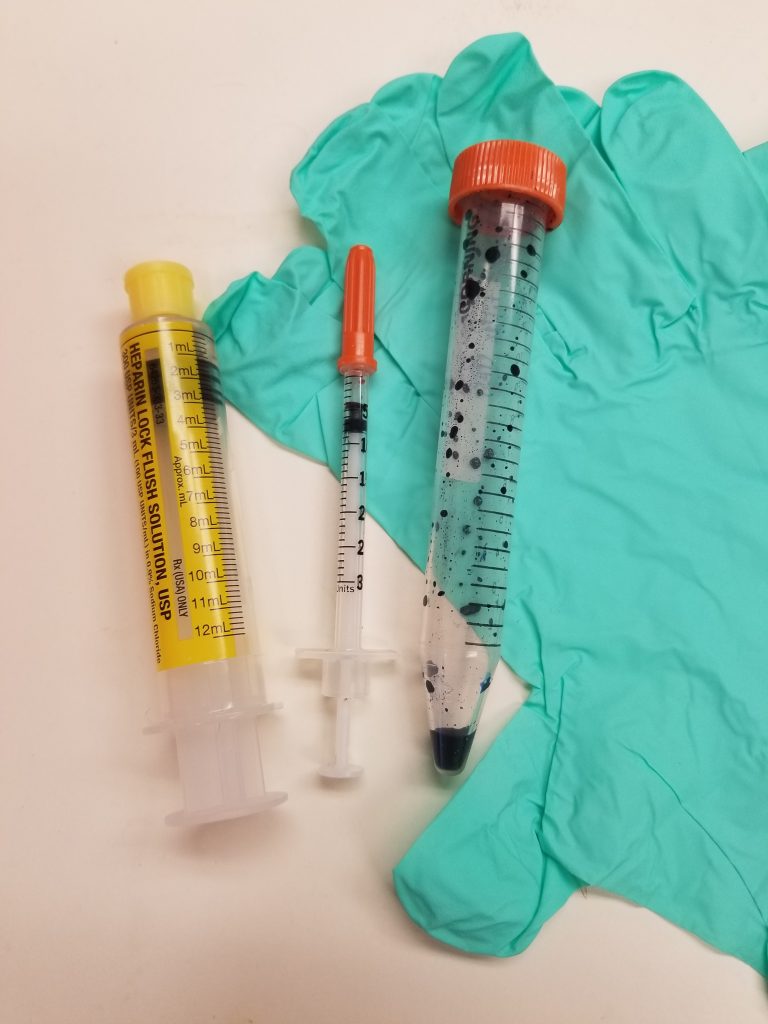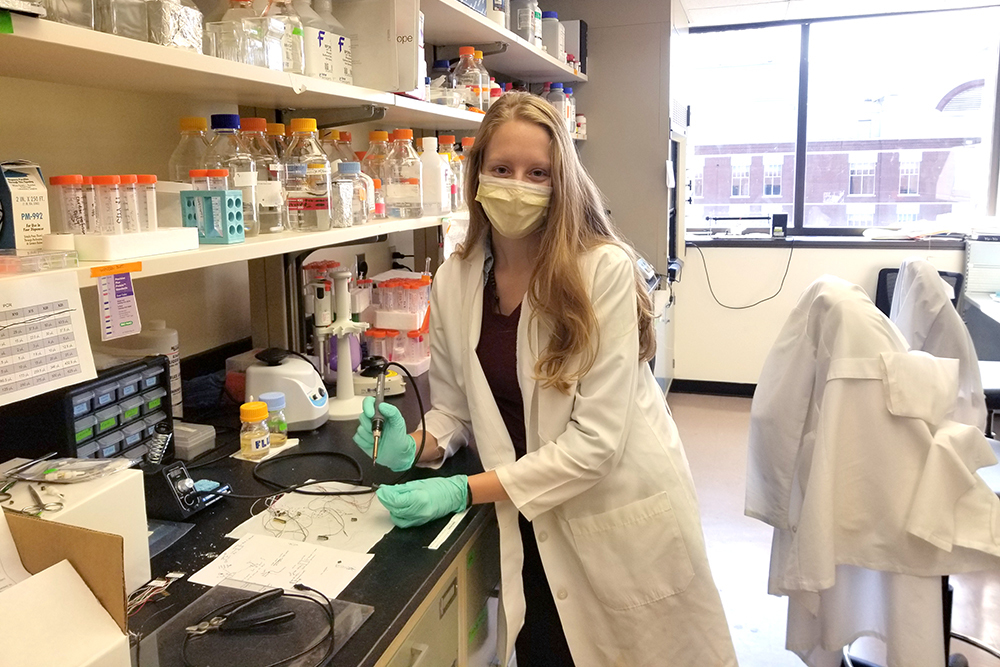What do soldering electrodes, discussing psychiatric medicine with clients, and cryostating (a.k.a., dissecting frozen) mouse brains all have in common? They’re job responsibilities that neuroscience alumni from Eastern Mennonite University (EMU) are tackling in the variety of fields in which they find themselves.
The neuroscience program is a collaboration between the psychology and biology departments. It’s been available as a minor since 2017, and is now also offered as a concentration within EMU’s biology program. This option is particularly useful for those looking into medical school, neuroscience graduate programs, or clinical psychology.
“This new concentration requires students to have a more thorough knowledge in biology and chemistry than what is required from the neuroscience minor,” said Professor Jeffrey Copeland, a faculty member in the Pre-Professional Health Sciences program.
“With small classes, devoted instructors, and four faculty members doing neuroscience research, EMU students in this concentration will have the foundation and skills for further professional developments,” Copeland said.
Recent graduates are already applying what they learned through the minor program in interesting ways. Melissa Kinkaid ’20 is a laboratory technician at the University of Virginia in Charlottesville working on three projects examining different causes of epilepsy. She majored in biology and minored in neuroscience and chemistry.

“Where do I fit in all of this?” Kinkaid asks. “Just about everywhere. Most of my daily job ranges from genotyping mice to soldering tiny electrodes the size of my pinky nail to slicing frozen mice brains to look at specific morphological changes. It might be seen as an odd combination, but I enjoy it!”
Jonah Short-Miller ’19 is a coworker in UVA Professor Alex Kuan’s lab, and Marcy Smucker ’18 also worked there. Kinkaid gave “special thanks” to all her EMU professors in the STEM department, and says that the neuropsychology course taught by Professor Eric Wengert has been especially useful.
Neuropsychology “bridged the gap between psychology and biology. This course was the cherry on top for me,” says Kinkaid. Wengert taught Kinkaid and her classmates to operate an electroencephalogram, which monitors electrical activity in the brain.
“This was so helpful having an introduction to the machine and its purpose because I am in the process of building one for our lab with the help of collaborators,” says Kinkaid. “You always read about equipment in textbooks, you might play with them a bit in a lab … but you never think you will be the one building it!”
Lara Weaver ’18 has taken her neuroscience foundation, which she studied alongside a psychology major and art and biology minors, to the mental health field. Weaver most recently worked for the National Counseling Group in Harrisonburg, Va., as a community mental health counselor and therapeutic day treatment counselor. She’s currently pursuing a masters in social work at Boston College, where she intends to take neuroscience electives.
As a counselor, Weaver mostly worked with students at a local elementary school, “de-escalating any classroom outbursts and gaining social and behavior management skills” both during the school day and after-hours with families. Being an artist as well (check out her work on Etsy), she would also use art as a tool for calming and teaching empathy. Part of her job was following up with clients and healthcare providers about their psychiatric medications.
“Understanding how each particular medicine works was helpful,” Weaver says, “in giving me a more accurate understanding of my clients. Gaining an understanding in neuroscience helped me communicate with medical providers and other mental health providers more accurately. “
